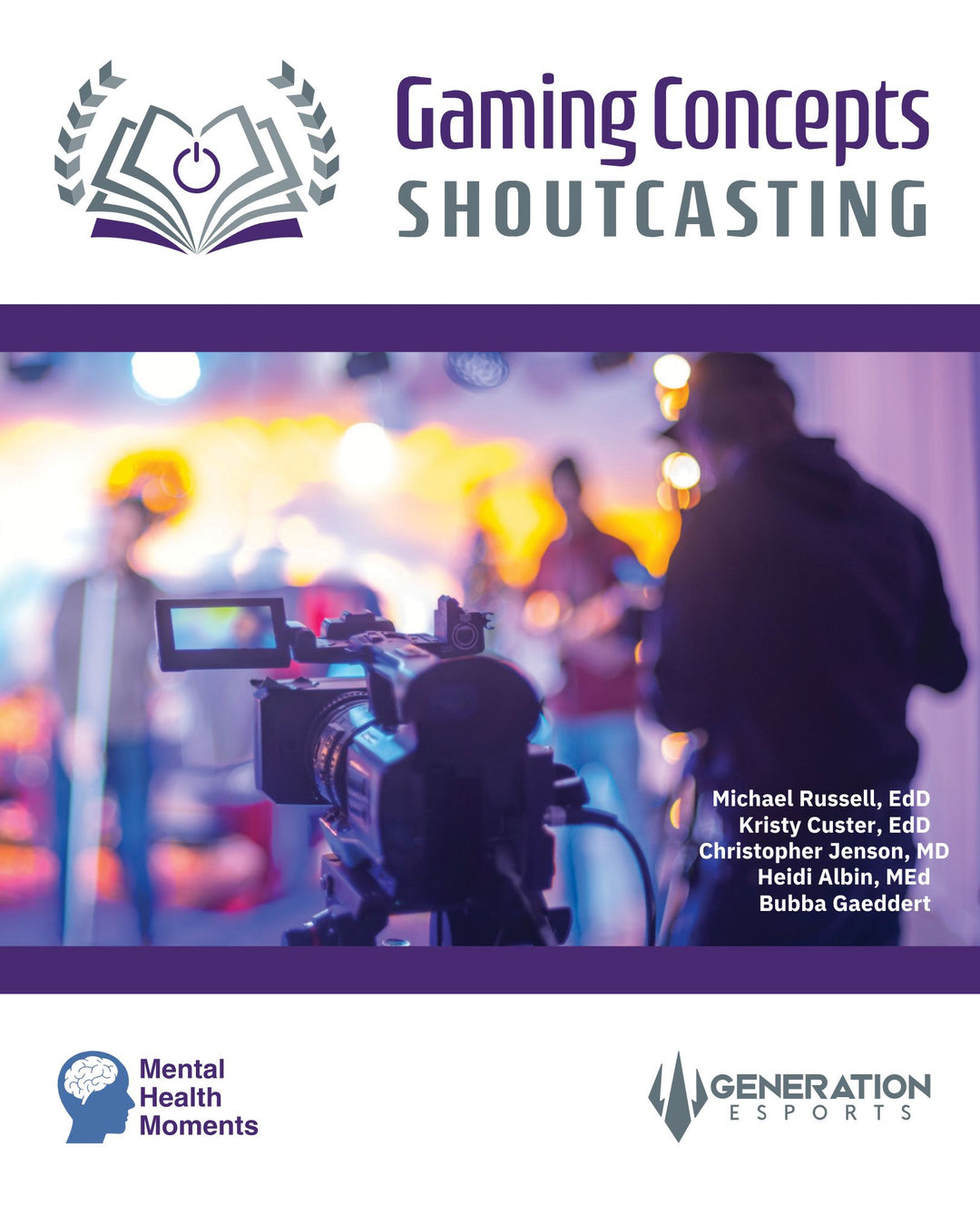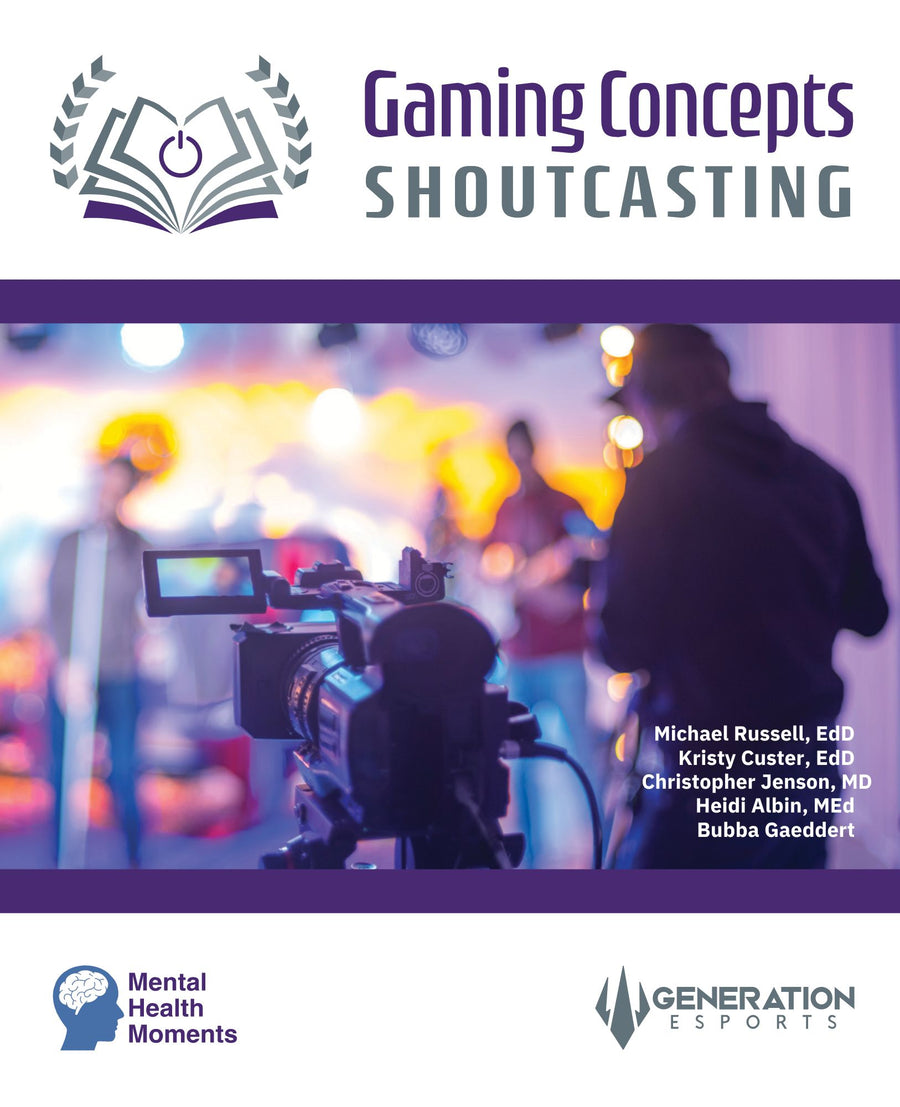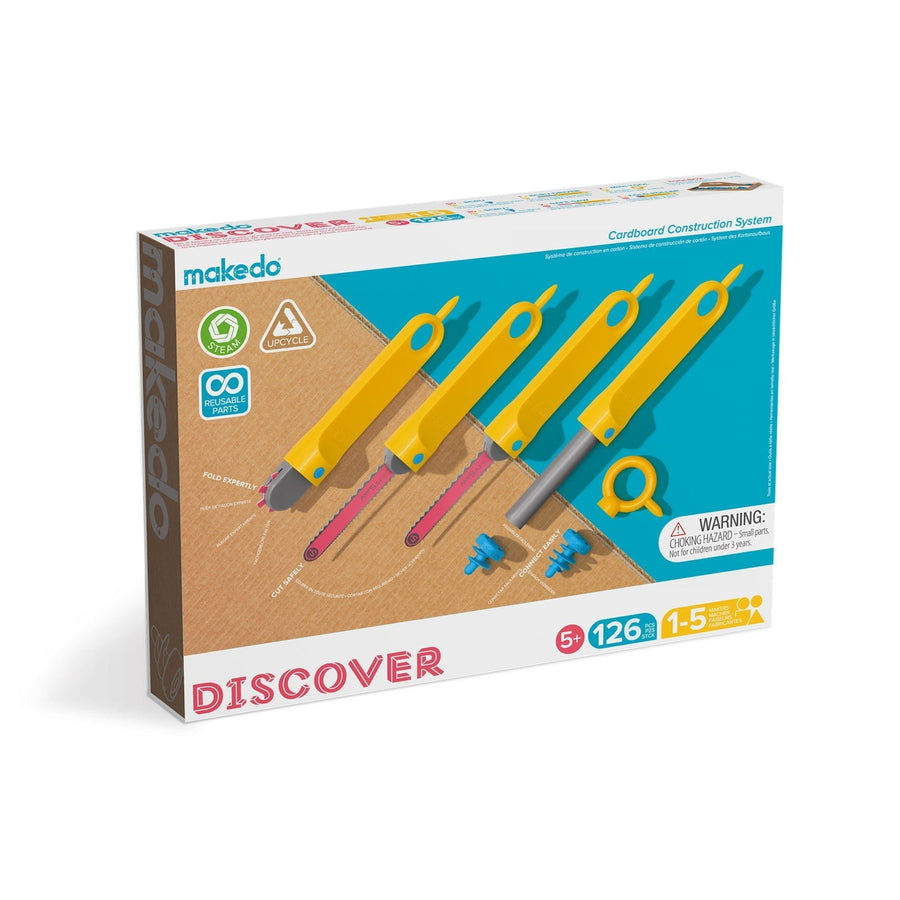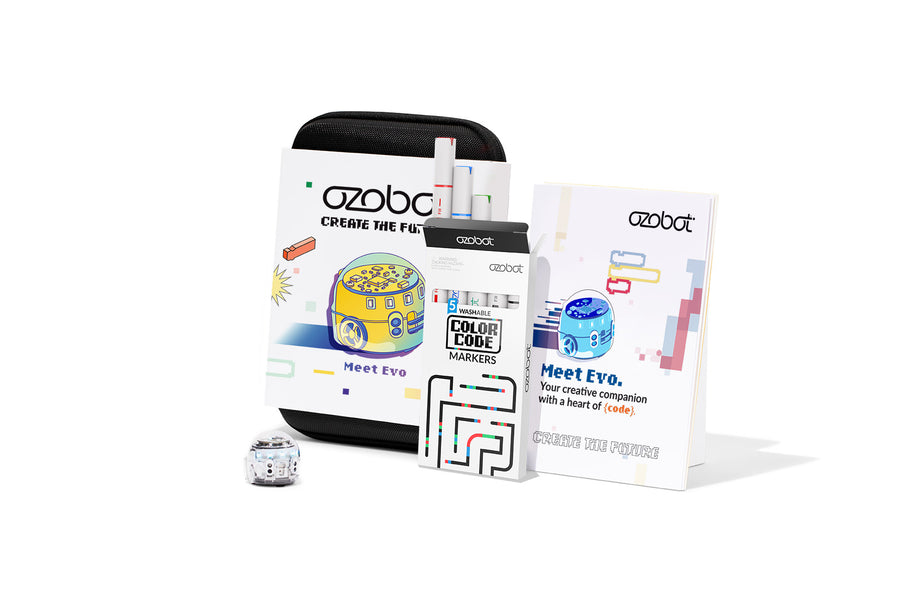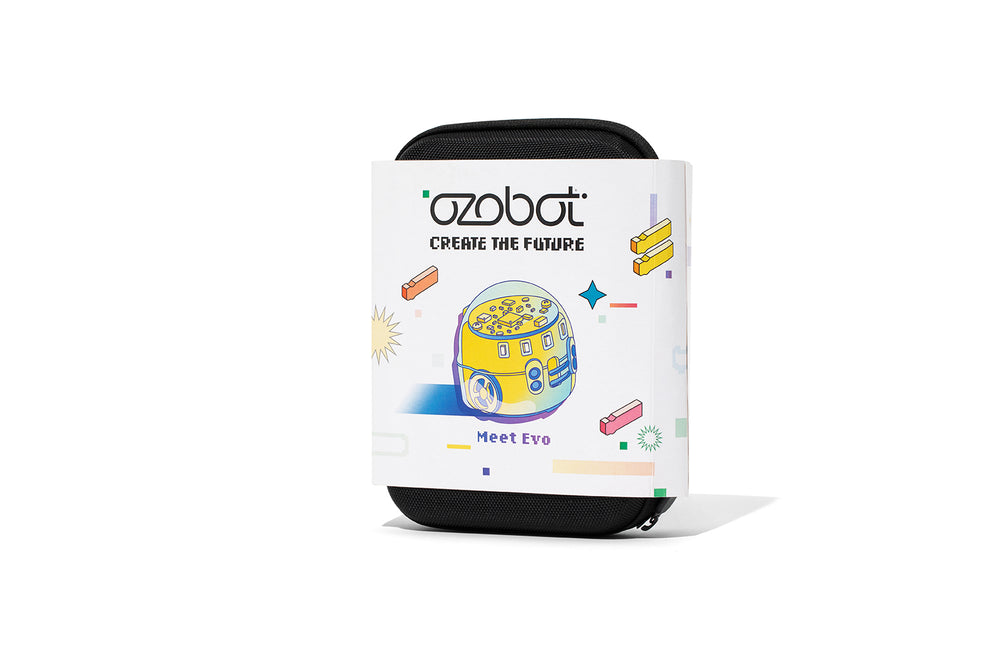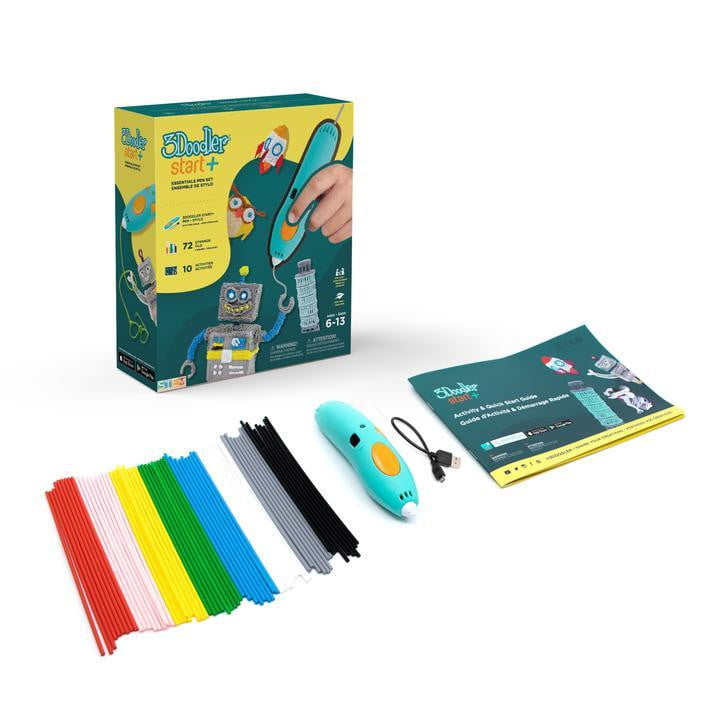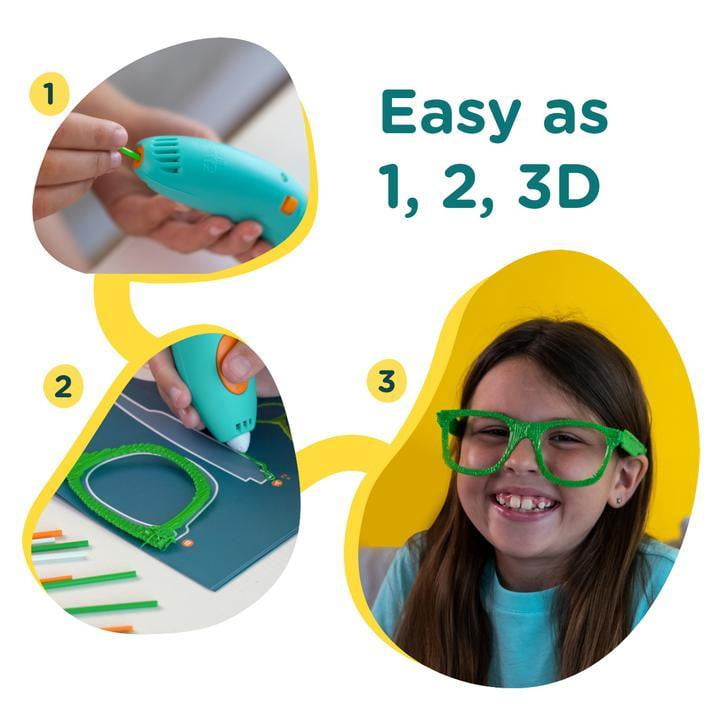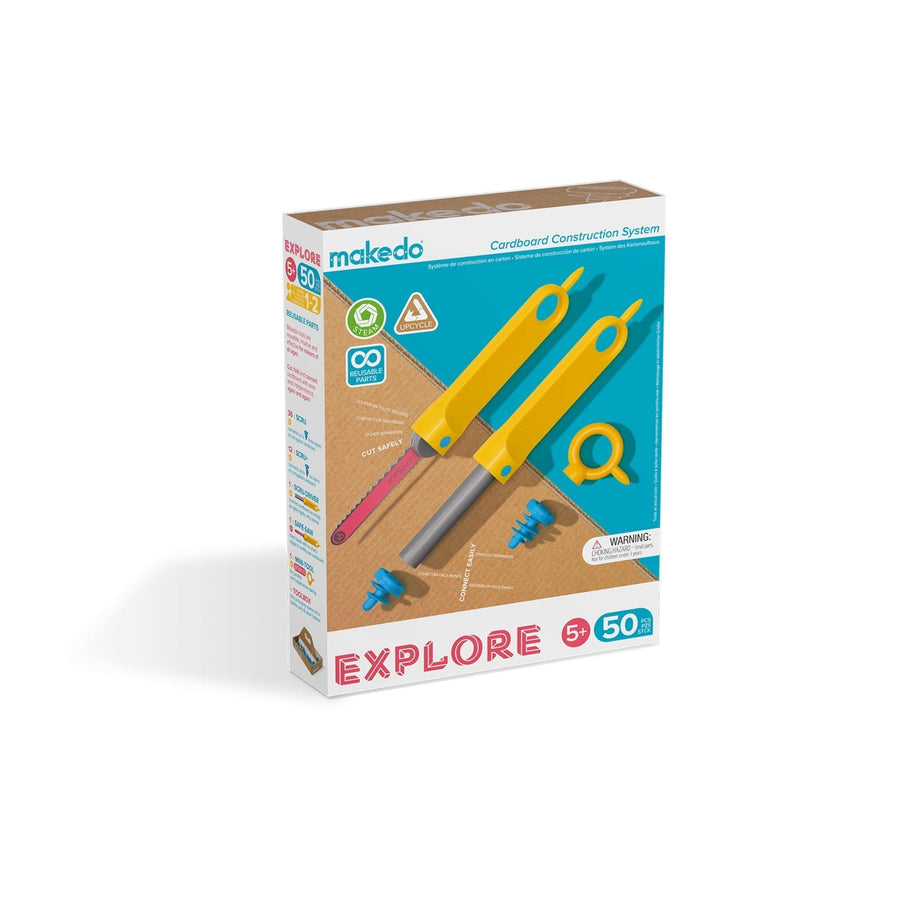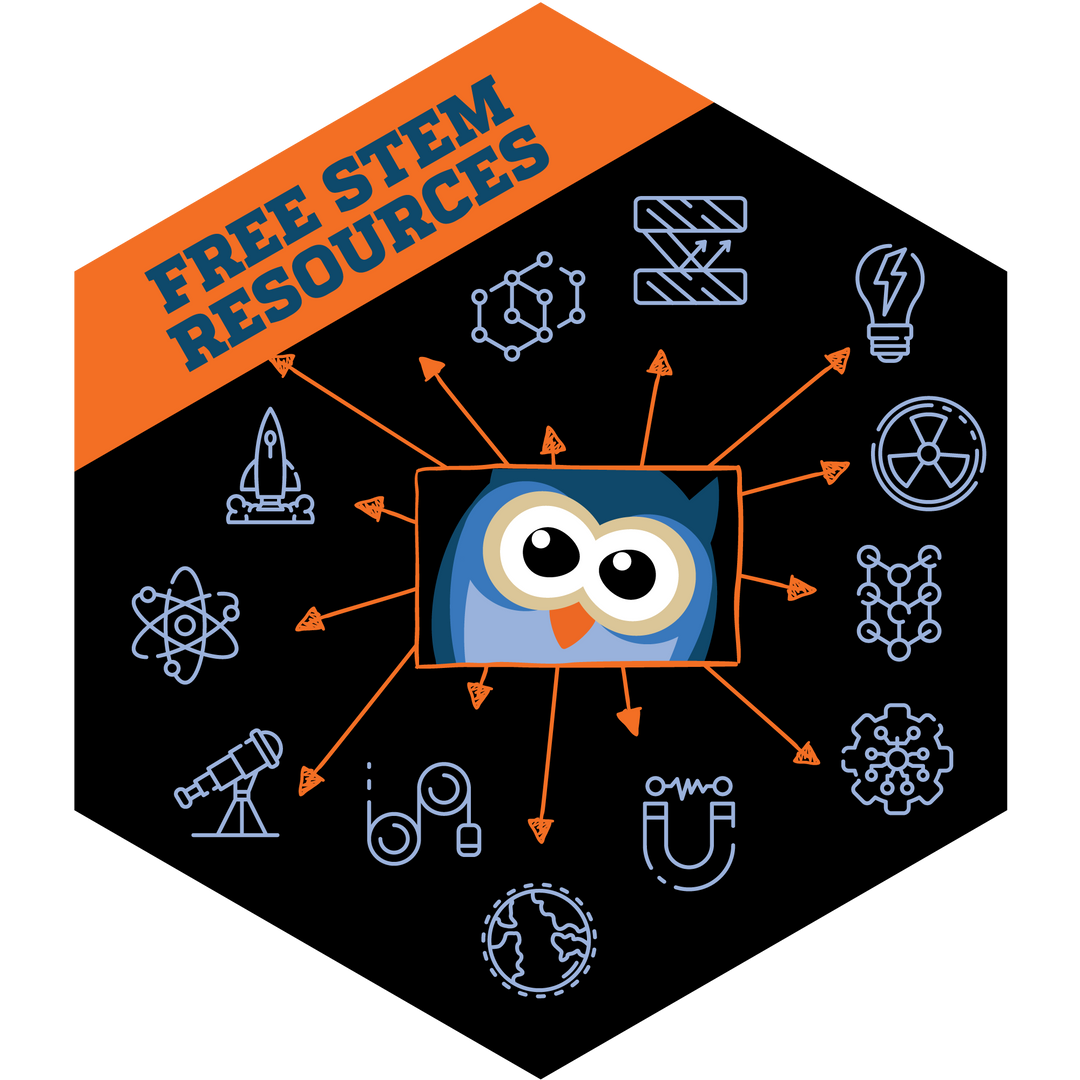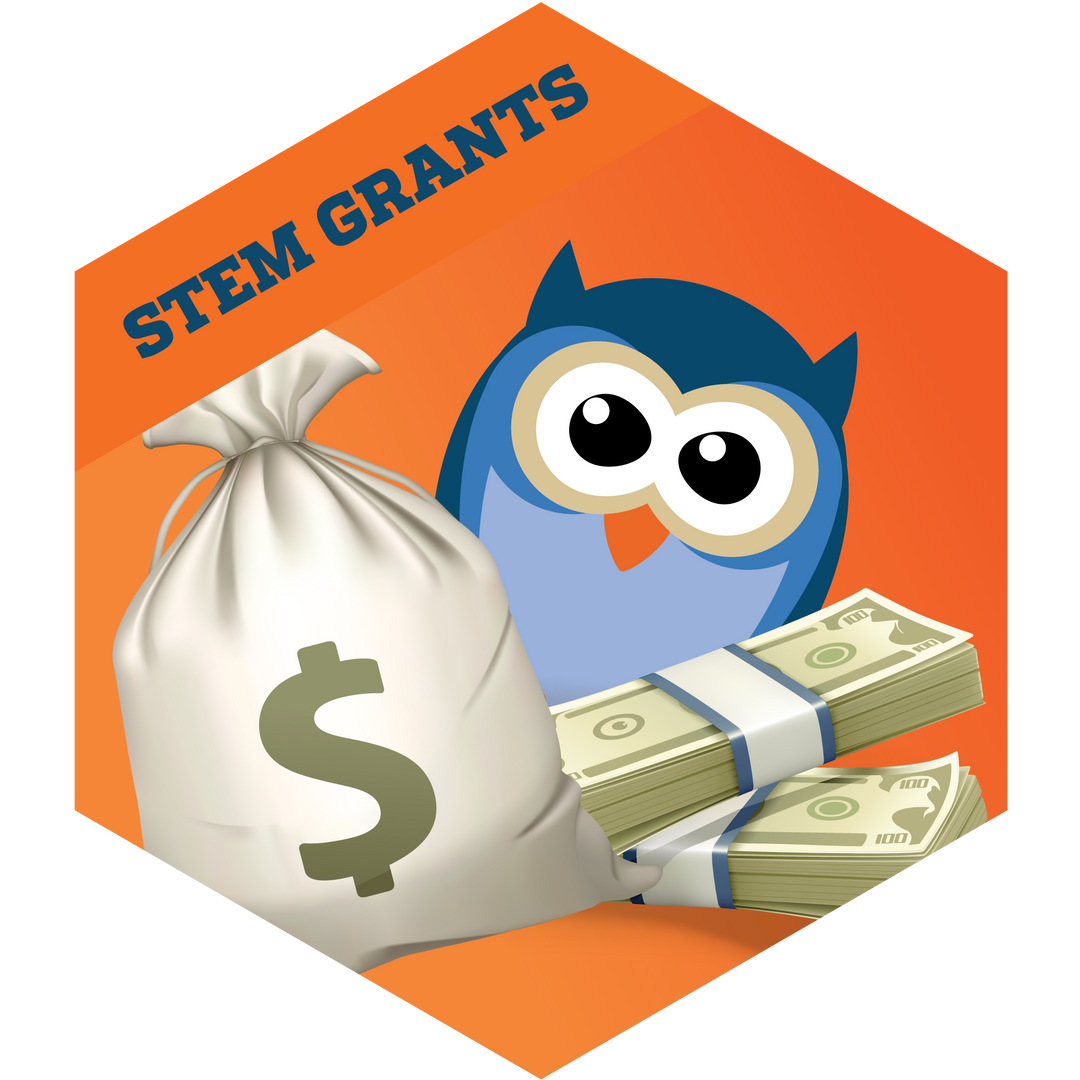Generation Esports: Gaming Concepts - Shoutcasting
- Grades: 9-12
- Number of Students: Unlimited
- Number of Lessons: 55
- Contact Hours: 55+
- Additional Resources: Curriculum Sample, Whitepaper Research
Highlights:
Gaming Concepts: Shoutcasting is aligned with national broadcasting standards and helps students who didn’t think they had an interest in journalism view this career field from a whole new perspective. Gaming Concepts: Shoutcasting teaches the fundamentals of broadcast journalism through the lens of a shoutcaster. Not only is shoutcasting a fast-growing career field, but the skills learned easily align with the Arts, A/V Technology, and Communications cluster CTE alignment. Lessons focus on an overview of shoutcasting and how it aligns with broadcasting, careers in shoutcasting and how to attain them, story writing and interviewing, the technical and equipment aspect of the career, media’s influence on society, developing and producing a complete broadcast, and the economic factors that influence the business.
Already downloaded over 400,000 times in over 40 countries through the Microsoft Educator community, Gaming Concepts is the gold standard for integrating video game play into schools. The acclaimed vertically aligned STEM.org approved series integrates esports with digital citizenship, college and career readiness, and mental wellness using integrated mental health moment lessons.
- Standards-Based, Peer-Approved Curriculum: Drawing from CTE, ISTE, and SEL standards, Gaming Concepts is STEM.org accredited and peer-reviewed. Comprehensive lesson overviews, easy-to-follow directions, and project-based lessons give teachers time to do what they do best — TEACH!
- Digital Framework Provides Access to STEM Fields: Using esports as a digital framework creates a new pathway for students from diverse backgrounds to experience science, technology, engineering, and mathematics (STEM) in an engaging way.
- College and Career Readiness: Teaching college and career readiness skills such as communication, teamwork, critical thinking, and problem solving, Gaming Concepts courses guide students to explore careers and learn skills they will need beyond high school.
- Our Online Learning Management System: Enabling teachers the flexibility to use both synchronous and asynchronous learning, our learning management system is everything schools need to teach Gaming Concepts courses, train students using game-specific training programs, and organize competitive teams.
- Tournaments For Every Skill Level: As a part of the Gaming Concepts package, you and your students get access to Generation Esports' tournaments, leagues, and community events.
Curriculum or Lesson Topics
- Level 1 - Battlecasters: Starting with an introduction to shoutcasting and its fundamentals, casters will delve into the language, lingo, and equipment required for live shoutcasting. Additionally, students will gain insights into the necessary training and education for success in the industry.
- Level 2 - The Cast: Casters will explore the roles within shoutcasting, understanding their unique responsibilities and contributions. They will learn how to develop a professional persona and navigate multiple personas when required for different shoutcasting engagements.
- Level 3 - Scriptcraft: This unit focuses on the art of crafting compelling shoutcast content. Throughout the unit, students will discover that everyone has a unique story to tell and learn how to harness the power of storytelling to create impactful and memorable shoutcasts.
- Level 4 - Digital Nexus: In this unit, students will explore advanced techniques in shoutcasting production. They will learn how to use multiple cameras effectively in OBS, utilize images to enhance production value, and master the intricacies of transitions, filters, and plugins to create visually appealing shoutcasts. Students will also explore various career opportunities in the field, understanding how to align their passion for shoutcasting with their unique personality traits for a successful career.
- Level 5 - Esports Amplified: Casters will investigate the professional and business aspects of shoutcasting. They will learn strategies for navigating team conflicts and factors to consider when working with teams in the shoutcasting industry. They will also explore the various production functions involved in shoutcasting and the importance of maintaining integrity in their roles.
Standard Alignments:
Drawing from CTE, ISTE, and SEL standards, Gaming Concepts is STEM.org accredited and peer-reviewed. Comprehensive lesson overviews, easy-to-follow directions, and project-based lessons give teachers time to do what they do best — TEACH!
Written by a veteran administrator, classroom teacher, and medical doctor, Gaming Concepts was created to transform students’ love of esports into an educational opportunity that would motivate and engage both high-level achievers and apathetic learners. Together, Dr. Custer, an experienced curriculum writer; Dr. Russell, an experienced gamer; and Dr. Jensen, a former ER doctor, created a scholastic gaming experience that both teachers and students can enjoy.
Journalism and Broadcasting Standards Addressed:
- ARPB01.01: Examine and summarize career opportunities in journalism and broadcasting to build an understanding of opportunities in the pathway.
- ARPB01.01.01: Analyze various careers in media companies, including radio and television stations, newspapers and magazines, video production houses, and Internet news outlets.
- ARPB01.01.02: Summarize the roles of journalism and broadcasting in society today using knowledge and history of journalism and broadcasting.
- ARPB01.01.03: Distinguish between different forms of media and their specific applications.
- ARPB01.01.04: Explain the value having a broad general knowledge base; and awareness of cultural, regional and diversity issues adds to a journalism and broadcasting career.
- ARPB01.02: Demonstrate writing processes used for various journalism media to build a base of skills for a career in the field.
- ARPB01.02.01: Define the terminology associated with journalism.
- ARPB01.02.02: Demonstrate how to cultivate sources for stories.
- ARPB01.02.03: Demonstrate how to obtain information to use in writing a story.
- ARPB01.02.04: Develop written stories for print and broadcast.
- ARPB01.02.05: Demonstrate how photographs support the development of stories.
- ARPB01.02.06: Employ knowledge of the similarities and differences among editorial, feature and news writing styles.
- ARPB01.03: Demonstrate writing processes for broadcast media to build a base of skills for a career in the field.
- ARPB01.03.01: Define the terminology associated with television broadcasting.
- ARPB01.03.02: Analyze how to develop a complete television project.
- ARPB01.03.03: Analyze how to develop a complete radio project.
- ARPB01.04: Demonstrate the ability to plan and deliver a broadcast production to exhibit readiness for completing key production functions.
- ARPB01.04.01: Analyze the elements of a newscast production.
- ARPB01.01.02: Summarize the roles of journalism and broadcasting in society today using knowledge and history of journalism and broadcasting.
- ARPB01.04.02: Analyze individual announcing competence.
- ARPB01.04.03: Identify wardrobe suitable for on-camera appearances.
- ARPB01.04.04: Analyze production functions.
- ARPB01.04.05: Demonstrate promoting productions.
- ARPB01.04.06: Analyze how image capturing and graphics design support the development of electronic presentations.
- ARPB01.04.07: Distinguish amongst various musical radio formats.
- ARPB01.05: Demonstrate knowledge and understanding of technical support related to broadcasting in order to enhance productions.
- ARPB01.05.01: Examine equipment and its function.
- ARPB01.05.02: Examine production activities.
- ARPB01.05.03: Explain how to run a board shift.
- ARPB01.05.04: Examine set design principles and practices.
- ARPB01.06: Examine and summarize business issues related to journalism and broadcasting to gain awareness of factors that influence programming, content and distribution.
- ARPB01.06.01: Analyze the business and economic factors that influence programming, content, and distribution.
- ARPB01.06.02: Explain the use of promotional materials, standard public service announcements, commercial/ads, press kits and advertising tags.
- ARPB01.07: Examine and summarize ethical and legal issues related to journalism and broadcasting to build awareness of various issues affecting conduct of employees in this pathway.
- ARPB01.07.01: Identify ethical responsibilities for individuals in journalism careers.
- ARPB01.07.02: Demonstrate professional conduct that follows a professional code of ethics.
- ARPB01.07.03: Investigate how the First Amendment, Freedom of Information Act, libel, slander, and copyright laws affect journalism and broadcasting.
- ARPB01.07.04: Investigate what constitutes plagiarism and invasion of privacy.
- ARPB01.07.05: Explain legal responsibilities associated with the use of public airwaves and station operation as required by federal governmental agencies.
- ARPB01.07.06: Explain how ethical responsibilities relate to the degree of influence the media has on individuals.
ISTE Standards Addressed:
- Empowered Learner: Students leverage technology to take an active role in choosing, achieving, and demonstrating competency in their learning goals, informed by the learning sciences.
- Digital Citizen: Students recognize the rights, responsibilities and opportunities of living, learning and working in an interconnected digital world, and they act and model in ways that are safe, legal and ethical.
- Knowledge Constructor: Students critically curate a variety of resources using digital tools to construct knowledge, produce creative artifacts and make meaningful learning experiences for themselves and others.
- Innovative Designer: Students use a variety of technologies within a design process to identify and solve problems by creating new, useful or imaginative solutions.
- Computational Thinker: Students develop and employ strategies for understanding and solving problems in ways that leverage the power of technological methods to develop and test solutions.
- Creative Communicator: Students communicate clearly and express themselves creatively for a variety of purposes using the platforms, tools, styles, formats and digital media appropriate to their goals.
- Global Collaborator: Students use digital tools to broaden their perspectives and enrich their learning by collaborating with others and working effectively in teams locally and globally.
CASEL Standards Addressed:
- Self-Awareness: The abilities to understand one’s own emotions, thoughts, and values and how they influence behavior across contexts.
- Self-Management: The abilities to manage one’s emotions, thoughts, and behaviors effectively in different situations and to achieve goals and aspirations.
- Social Awareness: The abilities to understand the perspectives of and empathize with others, including those from diverse backgrounds, cultures, & contexts.
- Relationship Skills: The abilities to establish and maintain healthy and supportive relationships and to effectively navigate settings with diverse individuals and groups.
- Responsible Decision-Making: The abilities to make caring and constructive choices about personal behavior and social interactions across diverse situations.
What's Included:
- One (1) Year of Digital Access to Gaming Concepts course for unlimited students and staff per site
- One (1) Complimentary Year of Unlimited HSEL or MSEL Tournament Passes for unlimited students and staff per site
- Unlimited Access to PD training webinar library and unlimited virtual PD support
- Generation Esports premium customer support team access
- Online Esports Coaching Certification ($200 value)
Technology Requirements/Specifications:
The course work can all be completed on any computer with internet browsing capabilities, even Chromebooks and mobile devices. For gameplay purposes, the required specs of the computer will vary based on the technical demands of the specific game that your students want to play during the course.
Special Notes and Considerations:
Special discounted pricing is available on bundles of two or more Generation Esports courses. Please contact sales@stemfinity.com to get a quote for your custom bundle today!
Generation Esports also offers on-site and virtual professional development packages:


